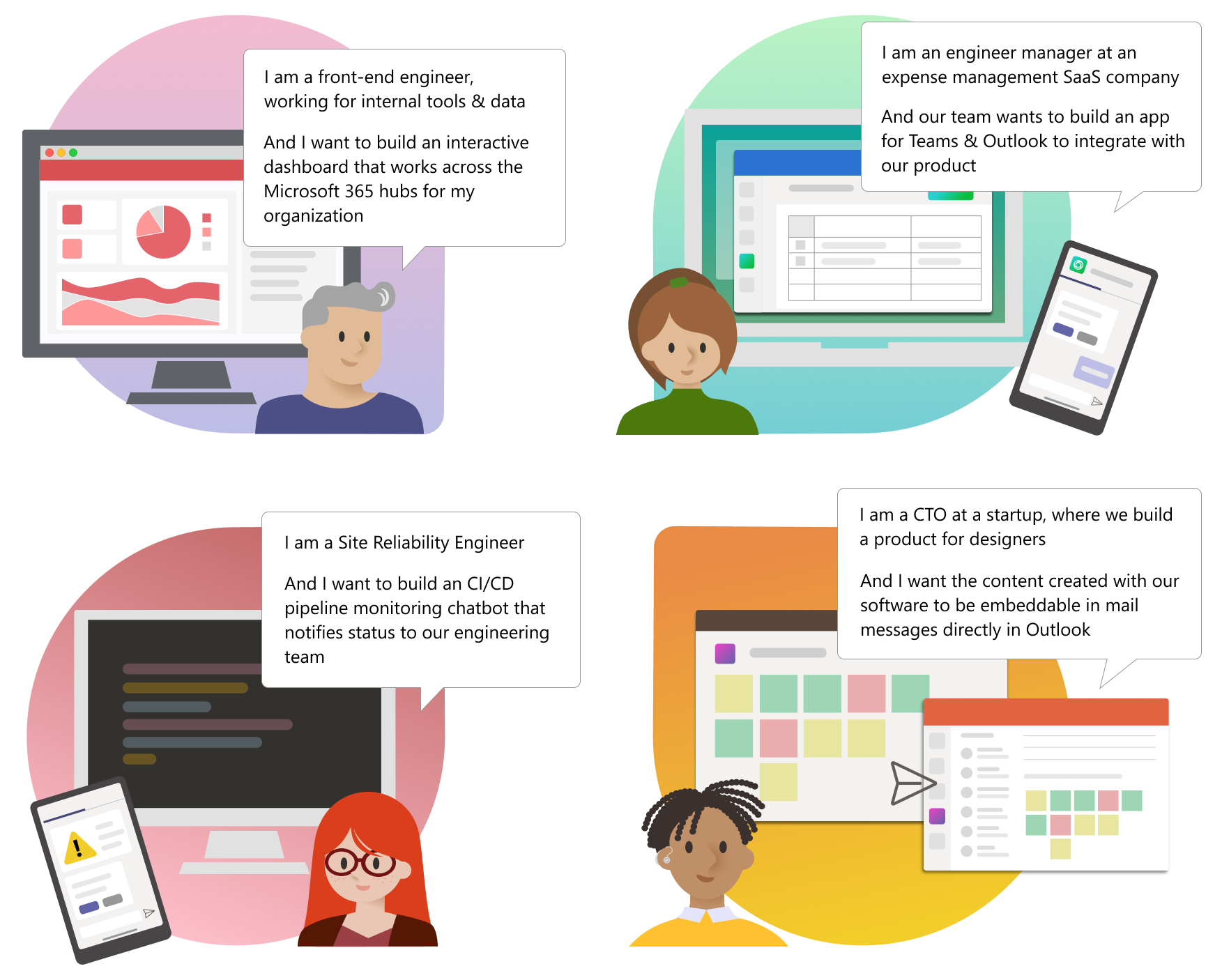Teams app that fits
Microsoft Teams offers a collection of apps that are provided by Microsoft or external services. Teams apps can be tabs, bots, or message extensions or any combination of the capabilities. You can extend Teams apps to work on Outlook and Microsoft 365 App, too. These apps expand the value of the Teams collaborative experience for users.
Apps can be personal or shared. A personal app enables a one-on-one communication and a shared app lets multiple users share app space to collaborate.
Driving organizational goals
Collaboration and communication are key for an organization. Concise communication, integration with necessary services, and on-the-go accessibility is why organizations are increasingly choosing to rely on apps.
Organizations use it to connect with their customers, provide services, and share information. But that's not all! Apps are the meeting place for people to work together. A well-placed app helps build a cohesive environment for external and internal business needs.
Let's look at some areas where an app helps to meet a business need.
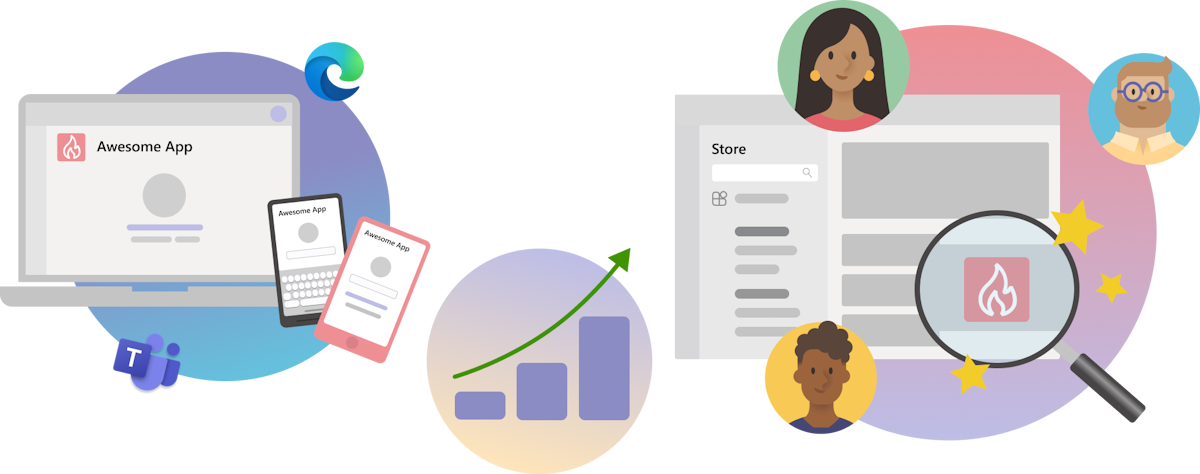
| Development options | Business opportunities |
|---|---|
| - Desktop app - Web app - Mobile app |
- Increase user engagements - Make your app discoverable on Microsoft Teams Store |
| Customer benefits | Internal workflows |
| - On-the-go accessibility - Secure customer data - Ease of communication |
- Automate repetitive tasks - Simplify tasks with bots, such as Q&A and helpdesk |
You can build apps with Teams platform by extending app capabilities to fit your needs. Create something brand new for Teams or integrate an existing app.
Take a look at these example developer personas and app scenarios:
You can meet all of these scenarios with Teams apps and enhance collaboration within your Teams across Microsoft 365.
Build apps with Microsoft Teams platform
Teams apps help your collaborative workspace to be more productive by bringing key information, common tools, and trusted processes to where people increasingly gather, learn, and work. Apps are how you extend the capabilities of Team platform to fit your requirements. Create something brand new or integrate an existing app, and you utilize benefits of Teams platform for your particular business needs.
The benefits of building apps span from meeting organizational goals to increasing internal productivity.
Here's why Teams is best suited for your app needs:
Communication and collaboration
Most successful Teams apps involve pulling information from another system, having a conversation about it, and letting users take action. Teams lets you do all these tasks directly within the Teams client. You can even push information to a targeted audience based on an event or action in an external system.
Social interactions
Teams is a social platform; custom social-focused apps encourage your team to extend your company culture into your collaboration space. Use apps for sending polls, letting people share feedback with each other, enabling connection, and communication.
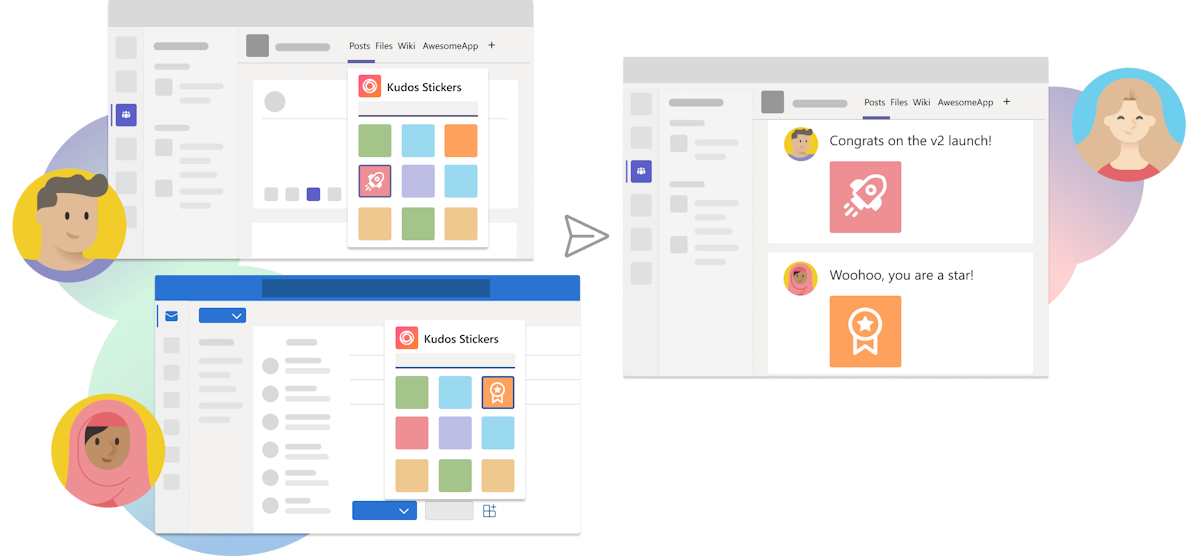
Common business processes
Tasks like creating and sharing a sales call report, tracking your project timeline, reserving common resources, submitting help desk requests, expense reports are repetitive tasks. They make for effective Teams apps.
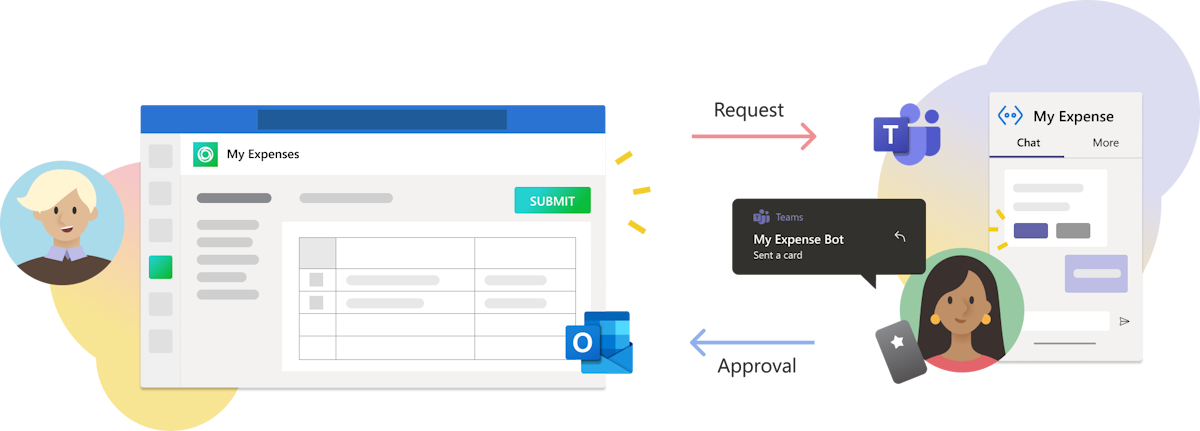
Personal apps with tabs and bots
One-to-one conversational bots are one of the more open-ended features in Teams. The conversation is just between the bot and your user. You have the flexibility of including dialogs (referred as task modules in TeamsJS v1.x) to simplify complex sets of information.
For example, if your app is a design tool with multiple collaborators, a shared bot that notifies all users helps to build user engagement.
Additionally, a chat bot can be an easy replacement for emails and phone calls to IT or HR departments.
Surface existing app
If you've got an existing web app, SharePoint site (or SPFx extension), PowerApp, or other web-based application, it may make sense to enable some or all of it in Teams. Extending existing apps and porting interactive functionalities to Teams helps to grow user base and user engagement for your app.
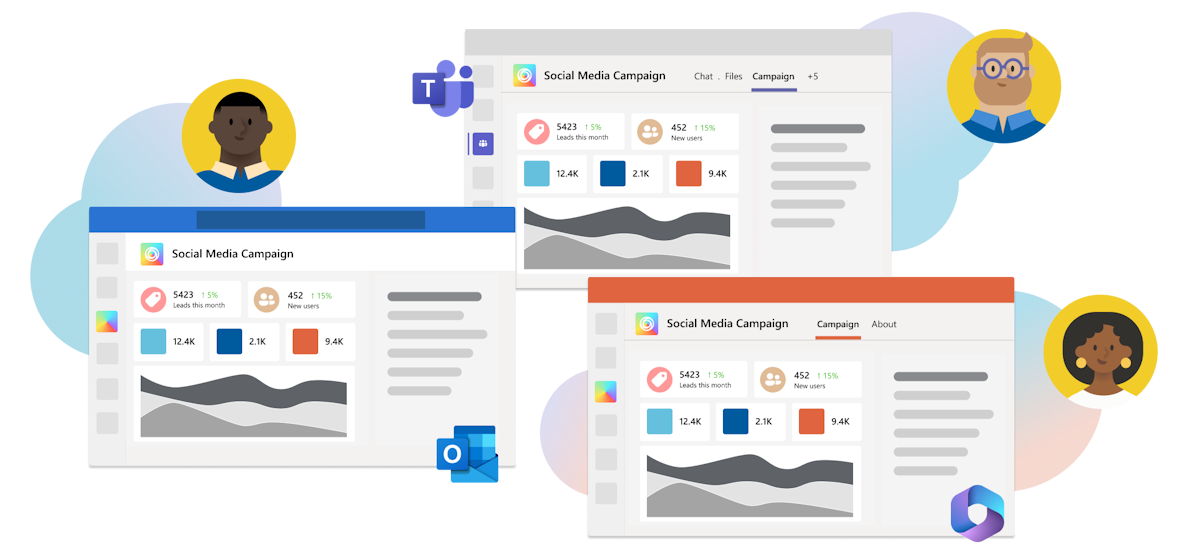
Teams Store advantage
Push your app on Teams Store to improve app's availability and you can use it as a marketing opportunity. If you're running a startup, Teams platform helps to increase awareness of your products. Teams Store marketplace can be a great platform for large audiences to discover your app.
Build once, run everywhere
Extend your Teams app across Microsoft 365, which provides a streamlined way to deliver cross-platform apps to an expanded user audience: from a single codebase, you can create app experiences tailored for Teams, Outlook, and Microsoft 365 app environments. End users don't have to leave the context of their work to use your app, and administrators benefit from a consolidated management and deployment workflow.
Use the latest app manifest and Teams JavaScript client library versions to enable your personal tab and message extension apps to run in other Microsoft 365 experiences in addition to Teams. You can reach users on platforms such as Outlook and Microsoft 365 app all with the same codebase, broadening the reach of your app and streamlining your development and distribution processes.
Next step
Platform Docs
